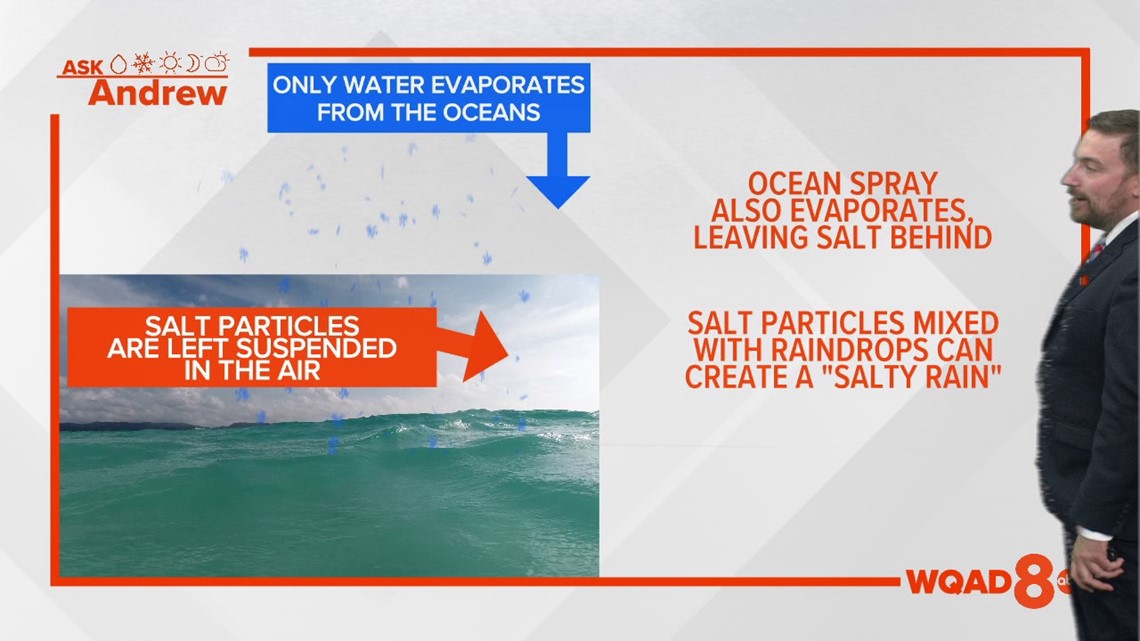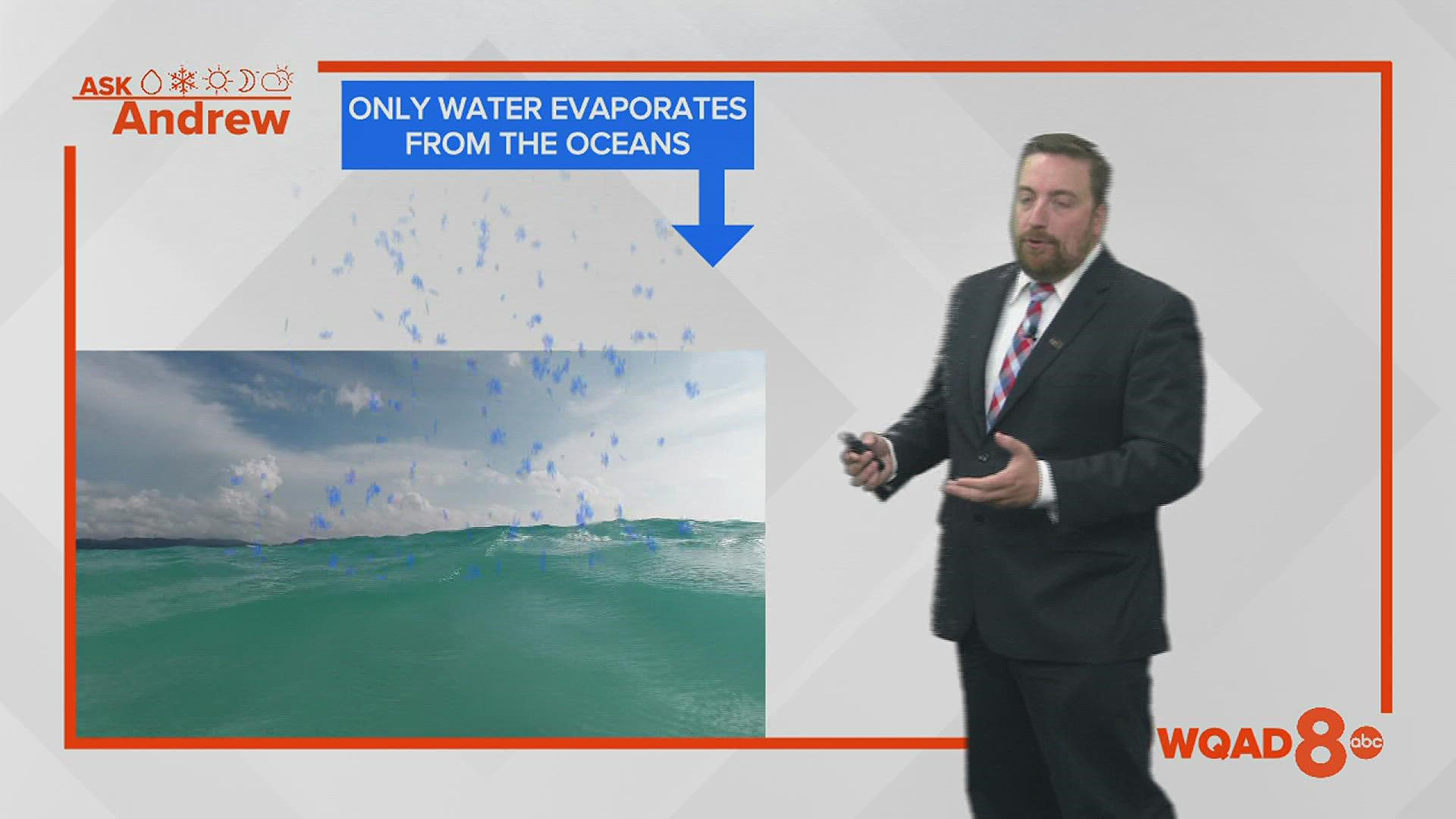MOLINE, Ill. — Hurricanes are one of Mother Nature's most dynamic storm systems. They act as natural air conditioners for the earth, taking in a ton of heat energy from the surface of the oceans and venting it up through the atmosphere. In their wake, cooler sea surface temperatures often prevail and can last for weeks.
Hurricanes are known for scooping up copious amounts of moisture as they develop. Jeremy from Rock Falls, Illinois, asks, "Do hurricanes drop freshwater? If so, what happens to the saltwater?" That's a great question, so let's dive in.
Hurricanes absolutely use the evaporation process to their full advantage. During this process, remarkably, only water vapor is evaporated. The salt particles are actually left behind and often times suspended in the air.


This same concept applies to ocean spray as well. Turbulent waters combined with strong winds will often send an ocean "mist" into the air. What ends up evaporating during this process is just water. However, leftover salt particles suspended in the air can combine with raindrops to create salty rain under the right conditions.
These salt particles can also create a salty taste in the air, especially if you are outside during a strong breeze off of the ocean itself.
On a related note, tornadoes or waterspouts can actually take water right out of the ocean and rain the salty water in another location because the force is focused on a much smaller area. Hurricanes have a force that is spread over a much larger area and not necessarily directed in one particular place at once.
Have a question you'd like me to answer for a future Ask Andrew segment? submit it here!

